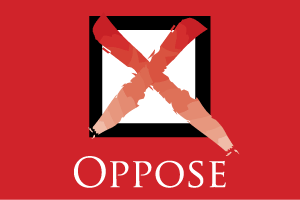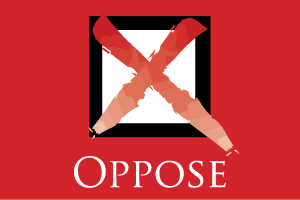 Several California Chamber of Commerce-opposed bills are scheduled to be heard in legislative committees today: one bill, SB 683, creates rules around hotel and rental pricing; another, SB 497, establishes a 90-day workplace retaliation presumption; and a third bill, AB 868, overregulates political communications.
Several California Chamber of Commerce-opposed bills are scheduled to be heard in legislative committees today: one bill, SB 683, creates rules around hotel and rental pricing; another, SB 497, establishes a 90-day workplace retaliation presumption; and a third bill, AB 868, overregulates political communications.
Hotel/Rental Pricing
Scheduled to be heard in the Assembly Business and Professions Committee this morning is SB 683 (Glazer; D-Contra Costa), which requires hotels and short-term rentals to include all taxes and fees in initially displayed price, making California look less competitive than other states where such listings do not include similar taxes and fees.
For virtually every product that a consumer buys—from appetizers at a restaurant to groceries in the supermarket to even buying a property—taxes are not included in the initial advertised price. As a result, it is common practice in booking to display the room’s rate in initial advertisements (as set by the hotel or short-term rental, “STR”), and then to calculate taxes once the reservation’s details have been entered, the CalChamber explained in a letter sent to legislators. For hotels and STRs, there are a range of governmental taxes, fees, and assessments that are industry-wide and consumers should be aware that these additions are not necessarily the choice of the individual hotel or STR.
The CalChamber opposes SB 683 because including taxes/assessments/district-related costs in initial advertised prices will make California’s tourism market appear less competitive than other states.
California’s success in tourism is always a battle between the higher costs of California and the great attractions of our state, the CalChamber said in its letter. International and domestic travelers will weigh the price of staying in
California vis-à-vis other states. These potential visitors—if SB 683 is passed—will see prices that appear significantly higher than other states. Of course, this will be an illusory increase, because other states’ displayed rates will not include their taxes and applicable fees.
“As a result, California’s inflated pricing will potentially dissuade more tourists from looking at booking visits to California—and thereby further slow the recovery of our embattled tourism industry,” the CalChamber cautioned.
90-Day Retaliation Presumption
Scheduled to be heard in the Assembly Judiciary Committee this morning is SB 497 (Smallwood-Cuevas; D-Los Angeles). This bill implements a 90-day retaliation presumption for certain claims, which is unnecessary in light of existing case law and will waste judicial resources by allowing claims to continue regardless of their merit.
SB 497 creates a presumption in favor of an employee retaliation claim under Labor Code sections 98.6 and 1197.5 where the alleged adverse action took place within 90 days of the alleged protected activity. The CalChamber is opposed to SB 497 because courts already take temporal proximity into account when evaluating retaliation claims.
“The courts should be allowed to consider other factors relevant to the specific case. Creating a presumption simply allows claims to proceed that should not be moving forward, which wastes valuable court and litigant resources,” the CalChamber states.
Political Communications
Scheduled to be heard in the Senate Elections Committee this morning is AB 868 (Wilson; D-Suisun City), which creates new costs, added bureaucracy and overregulates political communication by requiring state Fair Political Practices Commission (FPPC) to set up massive new database to manage and compile most digital advertisements, which already can be tracked via the Secretary of State website.
The CalChamber opposes AB 868 as it would add yet another regulatory cost to political speech.
California already has one of the most robust and transparent systems of campaign finance laws in the country, the CalChamber pointed out in a letter. There is information already available through the Secretary of State’s website where anyone in the world can see which candidate or committee has expended funds on digital ads, who contributed to the candidate or committee, what types of ads were paid for (whether they were digital, television etc.), and to the penny how much money was spent.
Additionally, if there is any allegation of impropriety or malfeasance or a formal complaint is filed, the FPPC already has the authority to conduct a thorough investigation.
“While we appreciate the author’s efforts to narrow the bill from last year, we will note that with the State facing a more than $20 billion budget deficit, this proposal would add material cost to the FPPC budget,” the CalChamber said.

